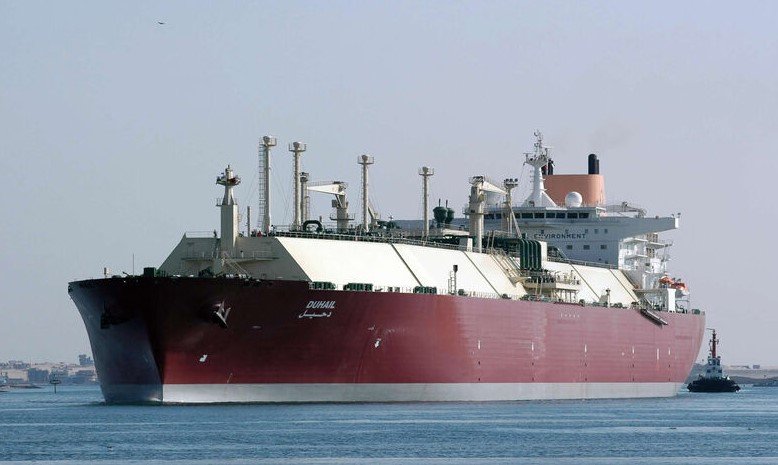Energy shortfalls, halted Israeli supply, and rising demand send Egypt scrambling for foreign gas—and the tab is getting heavier
Egypt’s gas balance just flipped upside down. Once poised as a growing Eastern Mediterranean exporter, the country is now forking out billions to import LNG after production slipped and pipeline flows from Israel dried up.
In the second quarter of 2025, LNG imports exploded by 1650%, reaching 1.75 billion cubic meters, compared to just 0.1 bcm a year earlier. Exports? Gone—literally. Egypt exported zero gas in the same quarter, marking one of the sharpest reversals in recent memory.
From Regional Powerhouse to Major Importer
This isn’t how things were supposed to go.
A few years back, Egypt was making bold moves in the energy scene. It reopened mothballed LNG terminals in Idku and Damietta. It inked deals with Israel and Cyprus. It even pitched itself as Europe’s next big alternative to Russian gas.
But the mood has soured.
Production is down. Domestic demand keeps rising. And to top it off, a temporary disruption in Israeli gas exports—which feed directly into Egyptian infrastructure—threw the entire system into chaos.
One sentence here.
By Q2 2025, Egypt found itself dependent on LNG tankers again, importing volumes not seen since the mid-2010s.

Money Going Out, Not Coming In
The numbers don’t lie—and they hurt.
According to Egypt’s Central Agency for Public Mobilization and Statistics (CAPMAS), LNG imports during the first four months of 2025 shot up 136.2% year-on-year. That’s $2.41 billion spent, compared to $1.02 billion in early 2024.
Meanwhile, gas and LNG exports? Down 81.1%—just $51.04 million earned, versus $270.2 million in the same 2024 period.
So, that’s:
-
$1.39 billion more spent on imports
-
$219.16 million less earned from exports
Basically, Egypt lost on both ends.
“This isn’t just a trade imbalance,” said a senior Cairo-based energy analyst who asked not to be named. “It’s a full-blown structural energy crisis.”
Why It All Fell Apart So Fast
There’s no single culprit here. It’s more like a domino effect.
Let’s break it down:
| Factor | Impact on Gas Sector |
|---|---|
| Declining Domestic Production | Shrinks available export volumes |
| Rising Local Demand | Diverts more gas to households |
| Halt in Israeli Supply | Cuts off critical regional source |
| Cold Q1 2025 Weather | Spiked early-year global demand |
| Renewable Shortfalls | Increased global LNG competition |
Some of this was predictable. Others blindsided even seasoned analysts.
One paragraph here.
The halt in Israeli gas supplies, in particular, was a nasty surprise. Egypt depends heavily on this source—not just for domestic use but also to liquefy and ship to global markets.
A Global Energy Picture That’s Shifting Fast
Zooming out a bit: Egypt’s troubles aren’t happening in isolation.
Globally, gas consumption fell 3% year-on-year in Q2 2025. Residential and commercial demand softened as temperatures normalized and energy efficiency gains kicked in.
But, interestingly, the first half of 2025 still saw a 4% increase in total consumption. That bump came mostly from Q1’s colder weather and renewable underperformance, which forced utilities worldwide to lean back on gas.
So the global LNG market remained competitive—exactly when Egypt was forced to re-enter it as a desperate buyer.
“Egypt was outbid on a few key cargoes this spring,” said a shipping executive based in Oman. “It’s not a buyers’ market anymore.”
What Comes Next? Not Great News
Egypt’s options aren’t great right now. Here’s what’s on the table—and none of it is cheap.
First, it’s reportedly turning to Qatar and the UAE for spot shipments. But these don’t come with friendly discounts. Then there’s the scramble to revive domestic exploration, particularly in the Western Desert and offshore Mediterranean blocks.
Some minor upstream investments are already underway. But those will take months—if not years—to yield results.
One sentence here.
And with no end in sight to the Israeli gas halt, Egypt is unlikely to restart exports any time soon.
The Public Is Starting to Feel the Burn
While the government has stayed relatively quiet, Egyptians are starting to feel the pressure—especially on their utility bills.
Since March, electricity prices have crept up. Gas bills, too.
“I’m paying double compared to last winter,” said Hassan Mahmoud, a small business owner in Giza. “They told us we were energy independent. What happened?”
One more paragraph.
The Egyptian pound, already under pressure from IMF-led reforms and ballooning external debt, is taking further hits as the government spends more dollars on imported fuel.
There’s frustration simmering—and the summer heat isn’t helping.
